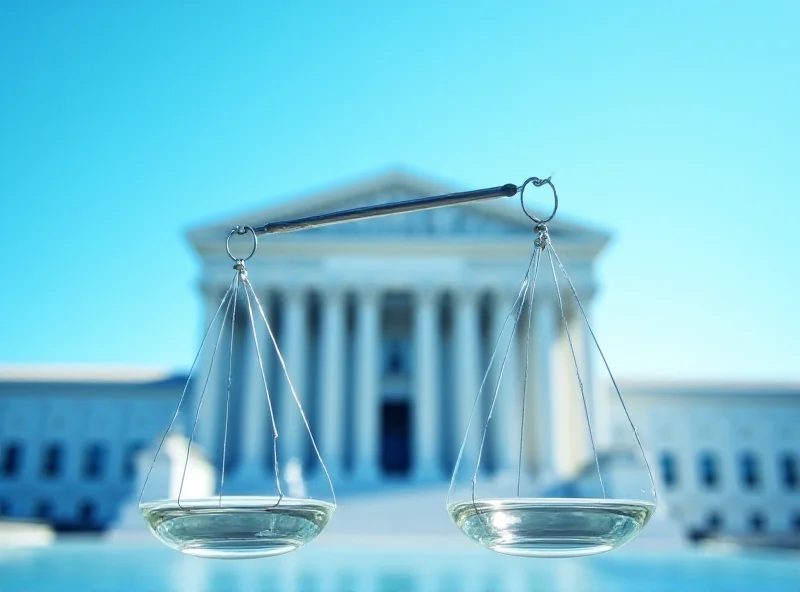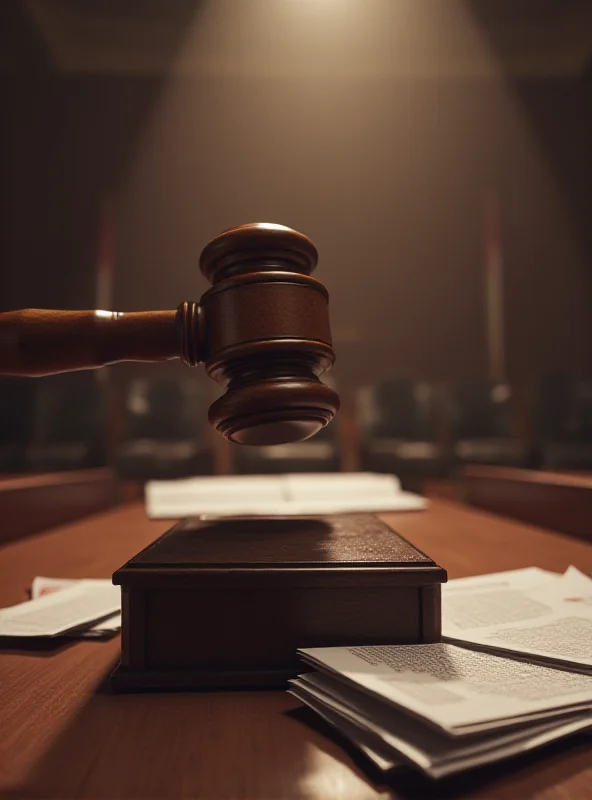Supreme Courts around the world are often the final arbiters of justice, and their decisions can have far-reaching consequences. This week, several high-profile cases involving Supreme Courts have made headlines, ranging from discrimination claims in the United States to overturned verdicts in Europe and disputes over international aid.
Discrimination in the US Supreme Court
The United States Supreme Court is currently examining a case that raises questions about discrimination and diversity. A woman claims she lost her job and was passed over for a promotion in favor of two homosexual individuals. The conservative-majority court appears to be leaning toward facilitating discrimination lawsuits for whites and heterosexuals who feel marginalized. This has sparked debate about the direction of diversity initiatives and the potential for reverse discrimination.

“This case could set a precedent for future discrimination claims,” says legal analyst Sarah Chen. “The court's decision will be closely watched by employers and employees alike.” The outcome could significantly impact workplace diversity policies and the legal landscape for discrimination claims.
International Aid and the Trump Administration
In other news from the US, the Supreme Court has sided with the government in a dispute over international aid contracts. The Trump administration is reportedly planning to cancel 90 percent of contracts held by the United States Agency for International Development (USAID), totaling a staggering $60 billion. The Supreme Court has suspended a federal court order that required the administration to release funds for contracts that had already been executed by USAID.
This move has drawn criticism from international aid organizations, who argue that it will have a devastating impact on vulnerable populations around the world. Critics argue that cutting aid will undermine global stability and humanitarian efforts.
European Court Cases
Across the Atlantic, Supreme Courts are also grappling with complex legal issues. In Poland, the Supreme Court overturned an eight-year prison sentence for a man, Patryk N., who threw an infant on the floor. The verdict was overturned due to issues with "neosędziów" (new judges), meaning the sentence is not legally binding and the case will be reconsidered. This has raised concerns about the independence and impartiality of the judiciary.

Meanwhile, in Spain, Rodrigo Rato, a former vice president, is alleging that his rights were "violated" after being sentenced to prison for a second time. His defense team plans to appeal to the Supreme Court, claiming that the Madrid court made errors in evaluating the evidence against him. Rato's legal team insists that the evidence was improperly assessed.
Finally, in another Spanish case, Supreme Court judge Ángel Hurtado has dismissed the possibility of attributing the leak of classified information regarding Ayuso's partner to other Prosecutor's Office staff. However, he confirmed the indications against García Ortiz for the revelation of secrets, adding another layer of complexity to the legal proceedings. The investigation continues to unfold.

These cases highlight the crucial role that Supreme Courts play in shaping legal frameworks and upholding justice around the world. Their decisions often reflect broader societal debates and have significant implications for individuals, organizations, and governments alike.
